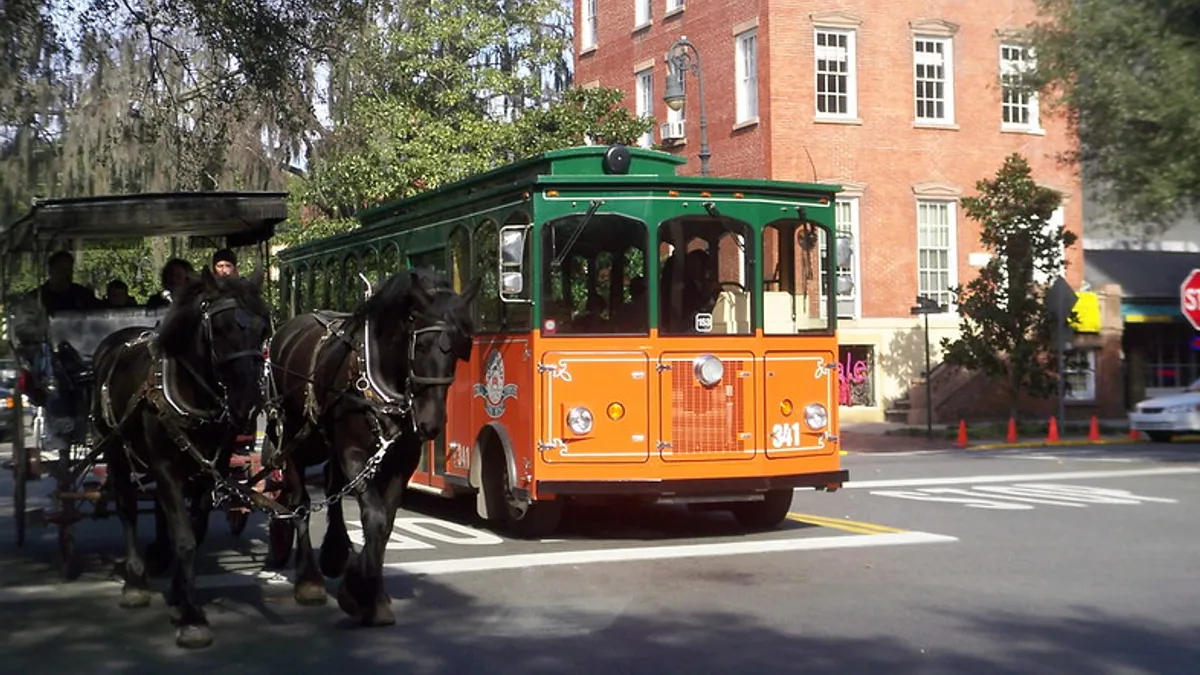Dive Brief:
- The Savannah Economic Development Authority (SEDA) announced this week a workforce incentive program that will reimburse qualified tech workers up to $2,000 to relocate to Savannah, GA.
- The Savannah Technology Workforce Incentive is designed to bolster the region's tech ecosystem by leveraging flexibilities of the telework community, especially amid relaxed telework limitations caused by the new coronavirus (COVID-19) pandemic.
- SEDA will accept up to 50 workers to the program through the end of 2020, and the $2,000 reimbursements will go toward moving expenses. Applicants must have three years of verifiable work experience, must relocate to Chatham County on a minimum one-year lease and must reside in the county for at least 30 days before applying.
Dive Insight:
Businesses, particularly in the tech space, have greatly increased remote work capacity and resources amid the social distancing orders imposed to mitigate COVID-19. Relaxed expectations for in-office work have enabled many workers to flee their major metropolitan areas — and SEDA is betting on some of those workers to land in the Hostess City of the South.
"I think we are taking advantage of a situation where a number of companies are coming back [to a more remote workforce]," Jen Bonnett, vice president of innovation and entrepreneurship at SEDA, told Smart Cities Dive. She pointed to companies like Nationwide Insurance that are closing offices in a shift to remote work and tech giants like Twitter and Square that have moved to a permanent remote work schedule.
Bonnett doesn't want just anyone to move to Savannah, however. Unlike Tulsa Remote's $10,000 remote workforce incentive, SEDA's $2,000 incentive is to simply reimburse moving costs, not to lure applicants into a formal remote program.
"I don't want you to move here for the money, I want you to move here because you love it," she said. "I'm counting on some people reconsidering living in very, very large metropolitan areas and hoping that an area like Savannah — with the very high quality of life, lower cost of living, an art scene and walkable streets, bikeable streets, a really cool history — will attract some of these workers."
Bonnett is in the process of building a landing page through her nonprofit organization The Creative Coast for interested applicants to learn more about the city and reach fellow remote workers or make connections with landlords or potential employers. The nonprofit works to catalyze the "intersection of creatives, tech and entrepreneurship for the Savannah region," Bonnett said.
Aside from The Creative Coast, Bonnett pointed to TechSAV, a fellow nonprofit that works to connect Savannah's "small but very vibrant" tech community. That organization fosters most of its networking through an active Slack channel where tech workers are encouraged to chat and collaborate.
Bonnett is calling on other area organizations to join conversations around ways to assimilate remote tech workers into the community. If the remote workforce incentive program is successful, she said she will be able to "renegotiate for possibly more funds to do this again in 2021."













